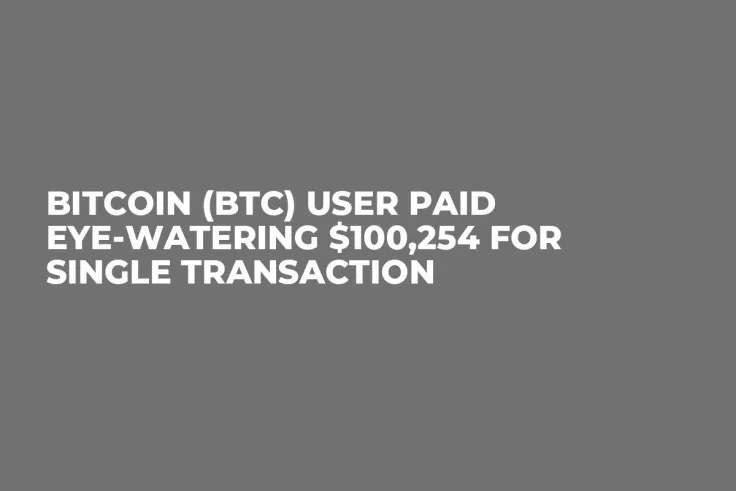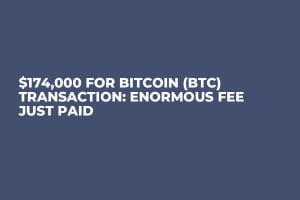
Disclaimer: The opinions expressed by our writers are their own and do not represent the views of U.Today. The financial and market information provided on U.Today is intended for informational purposes only. U.Today is not liable for any financial losses incurred while trading cryptocurrencies. Conduct your own research by contacting financial experts before making any investment decisions. We believe that all content is accurate as of the date of publication, but certain offers mentioned may no longer be available.
A single Bitcoin (BTC) transaction has caught the attention of many owing to its gas fee size. Blockchain analytics platform Whale Alert confirmed that a fee of 1.5 BTC was paid for a single transaction. This fee is equivalent to $100,254 based on the current market value of the top cryptocurrency. This fee is quite higher than the average transaction cost.
This user paid this enormous fee to have their transfer included in an ordinary Bitcoin block. Some of these transactions have been recorded in the past. In September 2023, a Bitcoin user paid a transaction fee of 19 BTC. This was around the time when Bitcoin price was trading at $26,000, hence, the 19 BTC was equivalent to $509,563.
Then again, in January, another BTC account paid over 4 BTC to have their transfer included in an ordinary Bitcoin block. The transaction was therefore charged with a whopping 1,800,890 sat/vB fee.
Potential reason for high transaction fee
Payment of such exorbitant fees usually raise suspicions as many market observers wonder the circumstances that could have led to it. At press time, Bitcoin's average transaction fee was at a level of $4.696, up from $3.740 on May 4 and down from $6.696 one year ago. This is also a change of 25.57% from yesterday and -29.86% from one year ago, per data from YChart.
It is worth noting that ordinarily transaction fees can fluctuate due to network congestion. It once reached as high as $60 during the 2017 cryptocurrency boom. Hence, this outrageous transaction fee recently recorded could be a result of a mistake or a misconfiguration in transaction software. It could also be potentially for reasons known only to the transaction initiator or even a possible money laundering scheme.


 Dan Burgin
Dan Burgin Alex Dovbnya
Alex Dovbnya Denys Serhiichuk
Denys Serhiichuk